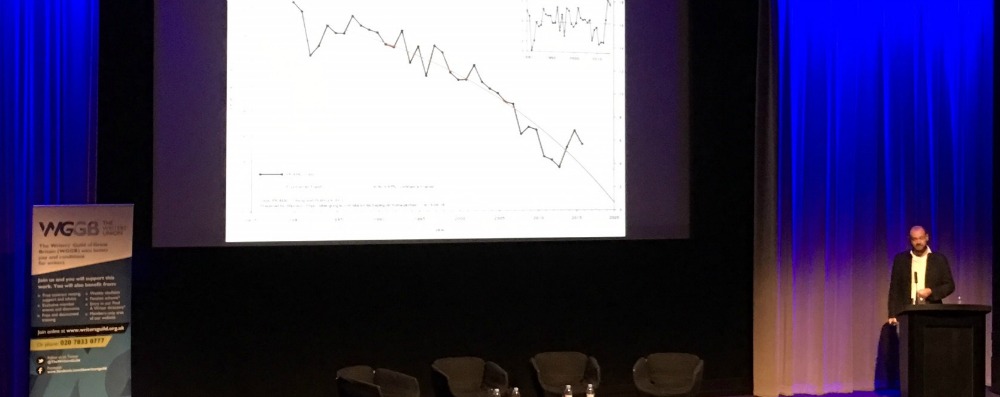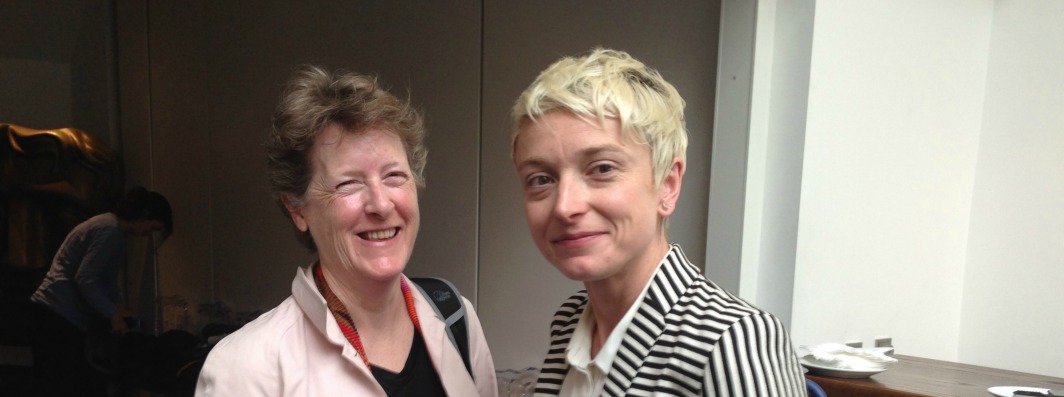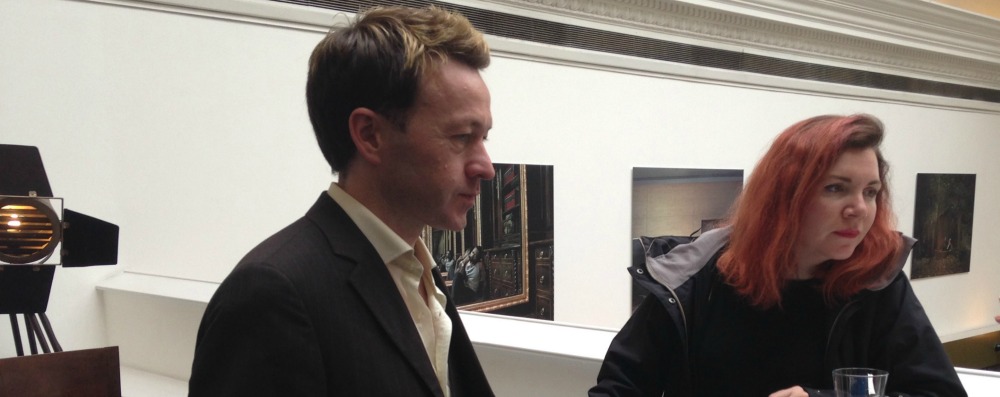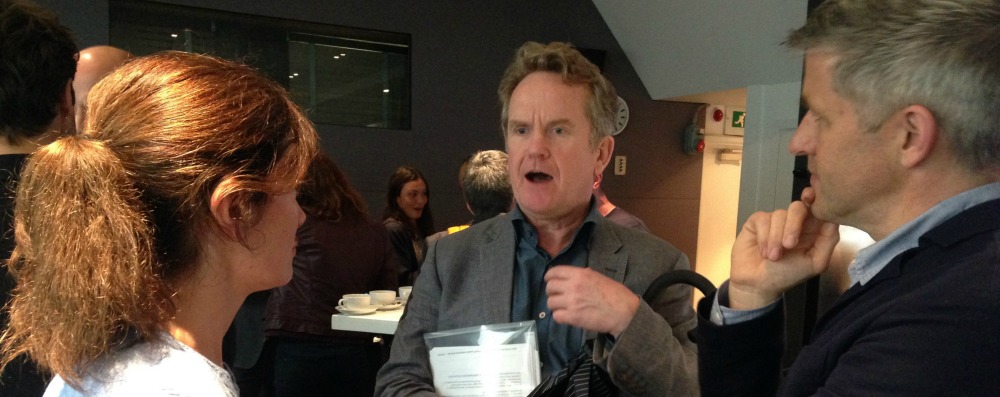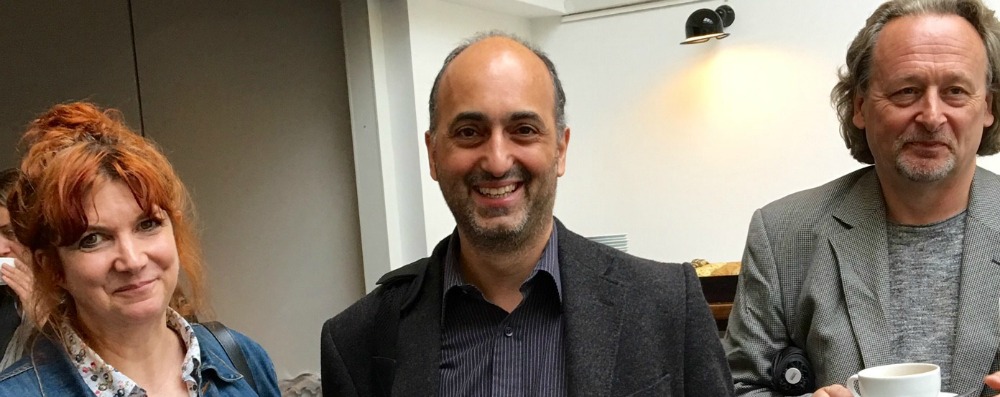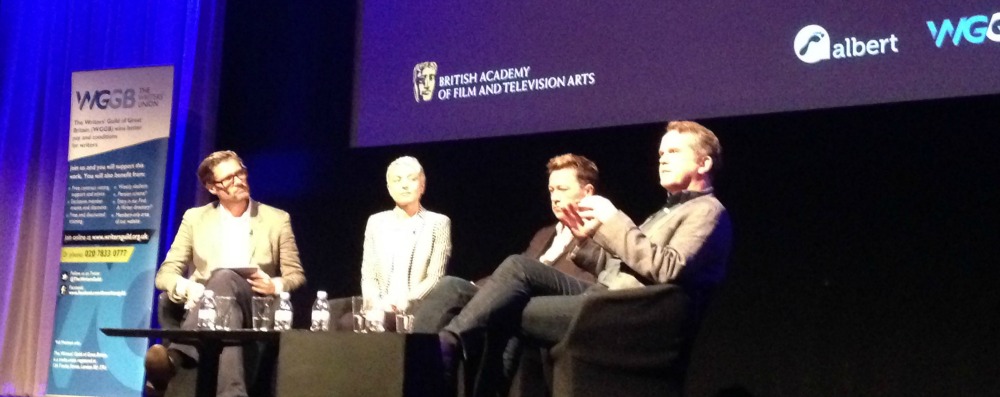
WGGB President Olivia Hetreed (pictured left) reports on Screenwriting for Sustainability, a WGGB/albert Consortium event held at BAFTA in London on 20 June 2016
The spring, the summer,
The childing autumn, angry winter change
Their wonted liveries, and the mazèd world,
By their increase, now knows not which is which.
Act 2, Scene 1, A Midsummer Night’s Dream
Midsummer Night’s Eve was, as in Shakespeare’s play, unseasonably wet and windy, but that didn’t stop an eager audience gathering at BAFTA in London for the WGGB/albert Consortium event on climate change and storytelling for the screen. The idea is to put screenwriters and experts in the same room and spark ideas for informed drama on this enormously important subject.
Chief Operating Officer of BAFTA Kevin Price introduced the session and briskly put paid to any notion of disputed science with regard to climate change. It’s real, it’s happening and we aren’t doing enough to lessen its impact. Surely there have to be a few stories in that? He was followed on stage by four experts in different areas of climate change science and policy.
Jeremy Leggett, founder of the Carbon Tracker Initiative and author of several books on the politics of climate change, set out a “winning narrative”, made possible he said by the Paris Conference on climate change last year. He suggested 10 key moments in this story, any of which might be the jumping off point for a drama. For example: world leaders decide to get serious about climate change; solar power doubles in capacity every two years. They offered lots of entry points for stories and a fundamentally optimistic point of view. While there is no guarantee that we can “win” this fight, we have at least a chance of doing so.
Ben Stewart from Greenpeace, a seasoned climate change campaigner, is very conscious of the problem of making the long slow facts of climate change exciting, memorable and gripping. He gave the example of the Arctic 30, the activists arrested by the Russians for trespassing on an Arctic oil rig. A series of dramatic photos of the action and then of the activists behind bars served to make the story front-page news, and it is now being turned into a film by WGGB member Guy Hibbert, produced by Lord Puttnam. Ben called these arresting moments “mind bombs” and showed a famous picture from the 1965 Selma march in the USA, of a black man confronted by snarling dogs and white policemen: the story of civil rights protest told in a single image. Martin Luther King was well aware of the power of key moments, what he called “the fierce urgency of Now”.
Jonathon Porritt, long-term environmental campaigner, apologised for his warning in 1986 that if we hadn’t made huge changes by 2000 it would be too late. Not because he was wrong but that such pessimism does no good. He asked if there is any integrity in a hopeful story, lamented 25 years wasted in “debate” over an established scientific consensus, and assured us that by 2050 climate change will have caused “trauma”. He challenged us not to miss an amazing opportunity as storytellers to dramatise so much conflict and such hard decisions and warned of the danger of sugaring the pill of a hard message.
Dr Peter Scarborough, the one working scientist among our experts, gave a thought-provoking presentation on the relationship of food and climate change. Around 30% of greenhouse gas (GHG) production is down to food and farming and, as the population grows, this number is also set to grow. We can choose not to fly, switch to solar energy but we can’t clean up the methane-belching cow. However, changing to an enhanced vegetarian diet could lead to big increases in general health as well as lowering GHG output.
The second half of the event was a panel discussion, chaired by Diederick Santer from TV production company Kudos, with screenwriter and playwright Dawn King, Oxford Films producer Mark Bentley (Ten Billion) and writer/director and WGGB Books Chair James Hughes, who showed a short trailer for his environmental animation The Velvet Abstract.
They discussed the problem of writing “issue-based” drama, which turns off commissioners and audience. An audience member made the point that scaring people and offering no way out of the problem is bound to be a negative experience. Good examples of storytelling that deals with the issues without being off-putting were as varied as The Good Life, Avatar and Erin Brockovich.
Having established that character and personal conflict are key to all good drama, our experts were asked for some ‘heroes’ who might be the centre of climate change stories. Jeremy Leggett nominated Christiana Figueres, the Costa Rican UN diplomat who masterminded the Paris Conference on climate change. Jonathon Porritt recommended looking at the winners of the Goldman Environmental Prize for astonishing true and heroic stories. Ben Stewart pointed to the drama and immediacy of the Arctic 30 story, focused on three young female environmentalists, currently being adapted as a film.
The audience was enthusiastic and, as questions from the floor showed, well-informed. After the debate there was a lively coffee and networking session.
Many thanks to Aaron Matthews from BAFTA/albert Consortium for jointly setting up this event with WGGB.
We look forward to more joint events and ‘meet the expert’ sessions.
Please do email me your suggestions: president@writersguild.org.uk
Photos: Anne Hogben and Olivia Hetreed (photo of Olivia Hetreed: Jo Gennard)

